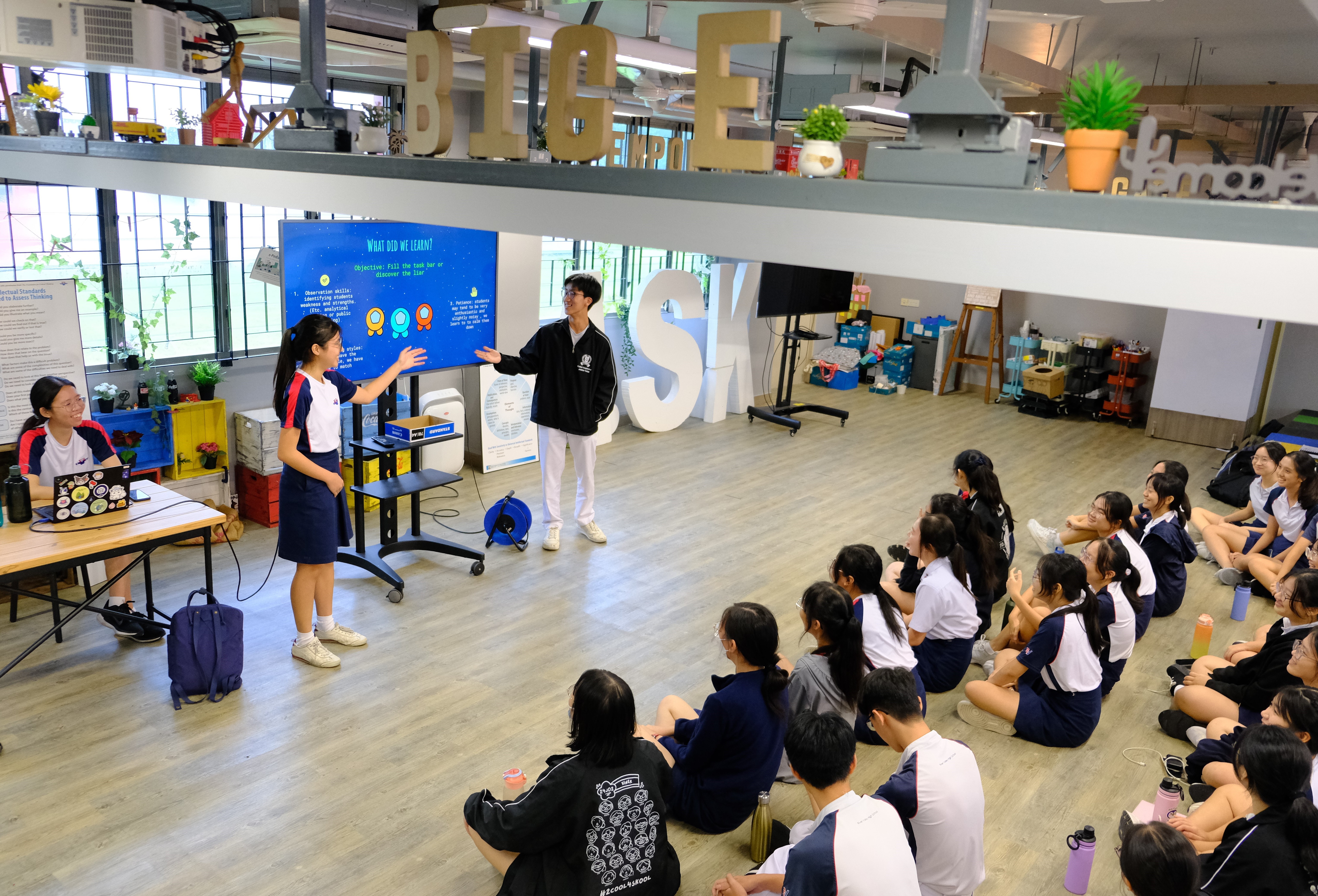Cognitive Interest Development Curriculum
Cognitive-Interest Development

River Valley High School's Cognitive-Interest Development Curriculum (CIDC) seeks to develop students holistically and equip all of them with important "Attitude, Skills and Knowledge" (ASK) through authentic learning experiences.
Students are given the opportunity to develop good habits of mind which means behaving intelligently when confronted with problems with no immediate answers (Art Costa, 2000). Students will also acquire critical, adaptive and inventive thinking skills that are crucial in the 21st Century. Students will move progressively from being a novice thinker to an advanced thinker.
In addition, students learn not just to acquire knowledge, but to also construct knowledge. In constructing knowledge, students must show a thoughtful understanding of the connections and relationships between various disciplines. They must also show an ability to apply their learning to address problems that they are likely to encounter in life beyond the classroom.
RVHS adopts the Teaching for Understanding (TfU) curriculum framework from the Harvard Graduate School of Education to implement the CIDC.
RV Flagship Programmes
The Special Assistance Plan (SAP) and Construct, Integrate and Differentiate (CID) programmes are signature CIDC programmes at RVHS that equip our students' with important critical and creative thinking skills in order for them to thrive in a future world.
Special Assistance Plan Programme (SAP)
As an SAP school with a mission to develop in students a deeper appreciation
of Chinese language, culture, traditions, and values, while embracing multicultural
diversity and perspectives, students are immersed in flagship programmes
to appreciate Chinese culture and values, develop their proficiency in
the Chinese language and cross-cultural skills and global awareness.
Read more about RV's SAP Programme here.
Construct, Integrate and Differentiate (CID)
CID aims to promote independent and active learning. It provides our students
with opportunities to construct their learning by integrating knowledge
from various disciplines by using modes of inquiry appropriate to the subject.
Through CID, students explore connections, and critically and creatively
apply their learning to real-life situations. The process of learning enhances
students' attitudes (Habits of Mind and dispositions of thinking) and skills
(collaboration, communication, critical and creative thinking, and research)
to prepare them for lifelong learning and future challenges.
Read more about RV's Construct, Integrate, Differentiate Programme (CID) here.

